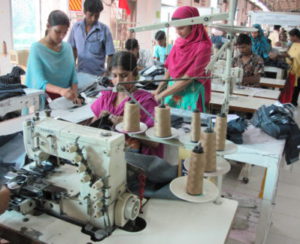Both the EU and the UK are significant actors in the trade and development arena. Changes to the relationship between the two can have significant spillover effects on developing country partners, who may not necessarily have a voice in the process.
The EU is a major export market for developing countries. It accounts for around 20% of all exports from low and middle income countries, a quarter of exports from both Sub-Saharan Africa and Low and Middle-Income South Asian countries, and close to 30 percent of exports from least developed countries. The UK, by virtue of its size and historical links to these regions, is a significant destination within the EU, accounting for between a fifth and a sixth of all exports to the EU from these regions. For some countries, such as Sri Lanka for example, the share can be a lot higher – between 30-40%.
The changing architecture for trade between the UK and the EU could affect these regions in several ways. Whereas exporters from these regions could previously access supply chains that operated seamlessly between the UK and the EU, that may well no longer be the case.
It is unclear as to how the UK will structure its future system of preferential tariffs, and how this relates to proposals – post Brexit – for unilateral liberalisation or an ambitious program of free trade areas.
On a longer term basis, the UK has been an important liberalising voice within the EU, on trade policy in general, and in relation to developing countries specifically. It was one of the driving forces behind the Everything But Arms initiative through which the EU gives tariff and quota free access to all products from LDCs. The future direction of EU trade policy, absent the UK, remains to be seen.
The articles in this section provide and overview of the many linkages that exist between Brexit and the trade/ development nexus. We hope they will help to keep these issues on the policy radar screen at a time when the intricacies of the exit talks, and talks on future arrangements understandably mobilise resources and energy.








